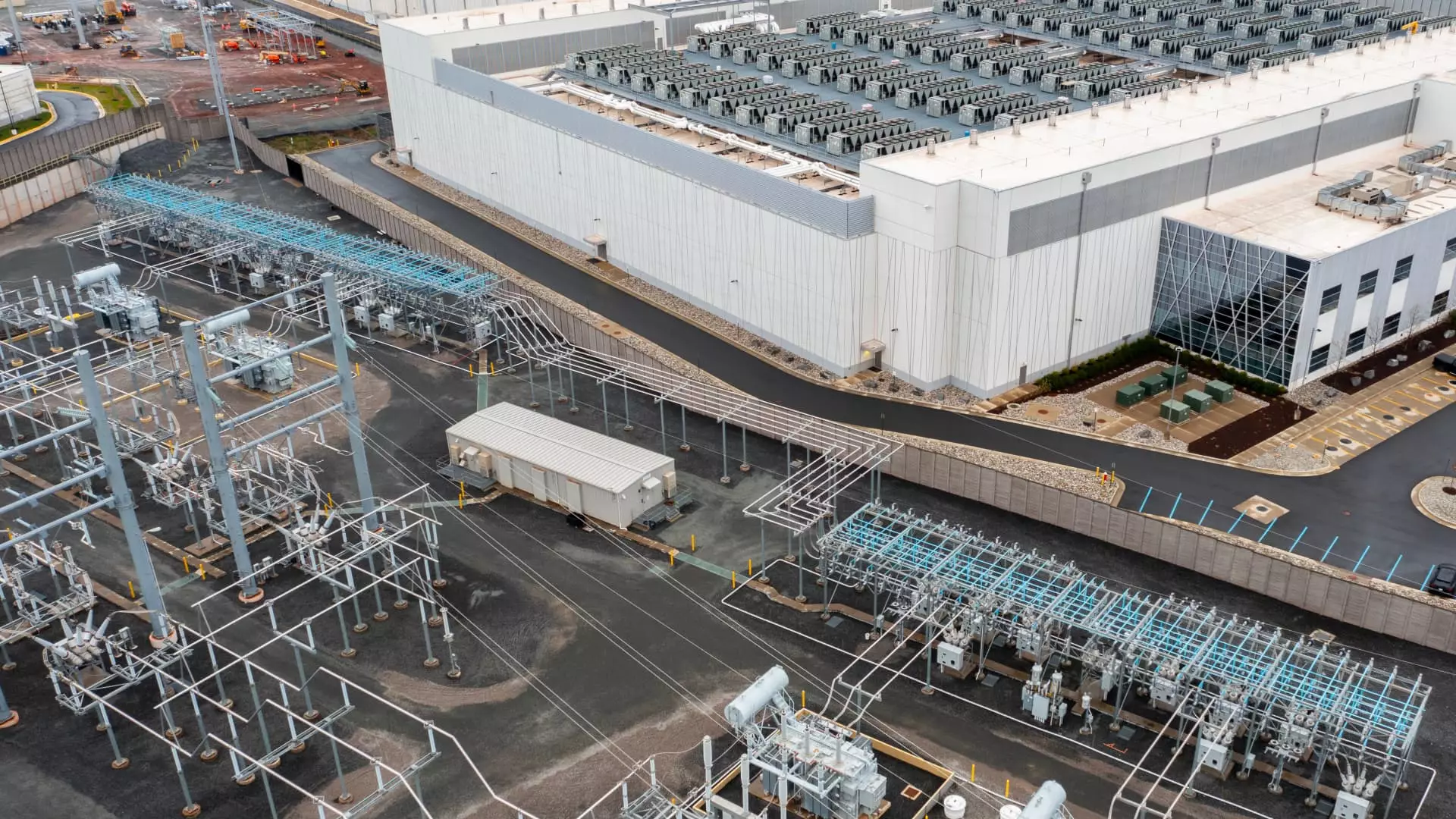In recent years, the intersection of technology and energy has garnered significant attention, particularly with the rise of artificial intelligence (AI) and cloud computing services. Tech giants are becoming increasingly reliant on robust infrastructure to satisfy their soaring power requirements. In a groundbreaking move, companies have begun exploring partnerships with nuclear power producers to meet these energy demands. The latest development in this trend came to a screeching halt when the Federal Energy Regulatory Commission (FERC) denied a proposal to augment power delivery from the Susquehanna nuclear plant in Pennsylvania to an Amazon data center. This denial has not only disappointed stakeholders but has also raised critical questions about the sustainability and feasibility of nuclear energy as a primary power source for data centers.
The FERC’s rejection had immediate repercussions on the market, particularly for Talen Energy, the independent power producer that had aims to deepen its ties with Amazon through a unique agreement valued at $650 million. This arrangement was touted as groundbreaking, as it would have enabled a significant power increase from 300 megawatts to a proposed 480 megawatts for the Amazon data center campus. Following the FERC’s ruling, Talen’s stock experienced a notable decline of over 9% in premarket trading, while other energy firms, such as Constellation Energy and Vistra Corp., also suffered drops of nearly 8% and more than 3% respectively. This trend reflects broader investor concerns about the viability of similar energy deals in the immediate future.
Talen Energy voiced strong criticism of the decision, suggesting that it could have a “chilling effect” on economic growth across several northeastern states including Pennsylvania, Ohio, and New Jersey. This statement emphasizes that the implications of losing such a deal extend beyond just corporate interests; they can potentially stymie regional job growth and development initiatives that rely on sustainable energy sources. The refusal by FERC to allow increased power flow signifies a stumbling block in establishing nuclear energy as a favored option for tech companies seeking more dependable energy resources in the face of unprecedented consumption growth driven by AI and cloud operations.
Despite FERC’s setback for the Amazon deal, Talen confirmed that the data center would still operate on the permitted 300 megawatts from Susquehanna, underscoring the continued utility of nuclear energy in powering advanced technological frameworks. Interestingly, Constellation’s plans to revitalize the Three Mile Island nuclear plant remained unaffected by the government body’s ruling. Through a power purchase contract with Microsoft, this plant will contribute its energy to the grid instead of directly powering data centers, holding a different but equally significant promise for future renewable opportunities.
The situation demonstrates a broader trend in energy consumption patterns; as data centers expand, specifically those involved in AI, their power requirements are soaring, prompting a scramble among utility companies to keep pace. Notably, nuclear energy is being viewed as a vital resource due to its reliable output and clean operational characteristics—key factors that resonate with an increasing number of technology firms committed to sustainability. Investors remain optimistic, as seen with Vistra and Constellation’s impressive stock performances in the wake of these developing narratives. Their stocks have seen remarkable growth this year, fueled by anticipatory investments placed on emerging energy partnerships with tech firms.
With the recent developments surrounding nuclear energy and the tech industry, it is essential to rethink strategies that consider regulatory, economic, and environmental factors. The interaction between these sectors can dictate the trajectory of energy production and consumption in coming years. As both the technology and energy markets evolve, so too must the regulatory frameworks that govern them, ensuring that innovation does not stifle opportunity but rather facilitates sustainable growth. The future partnership landscape between nuclear energy producers and tech giants remains uncertain, yet full of potential—for those willing to navigate the tricky waters of policymaking, economic viability, and consumer responsibility.

